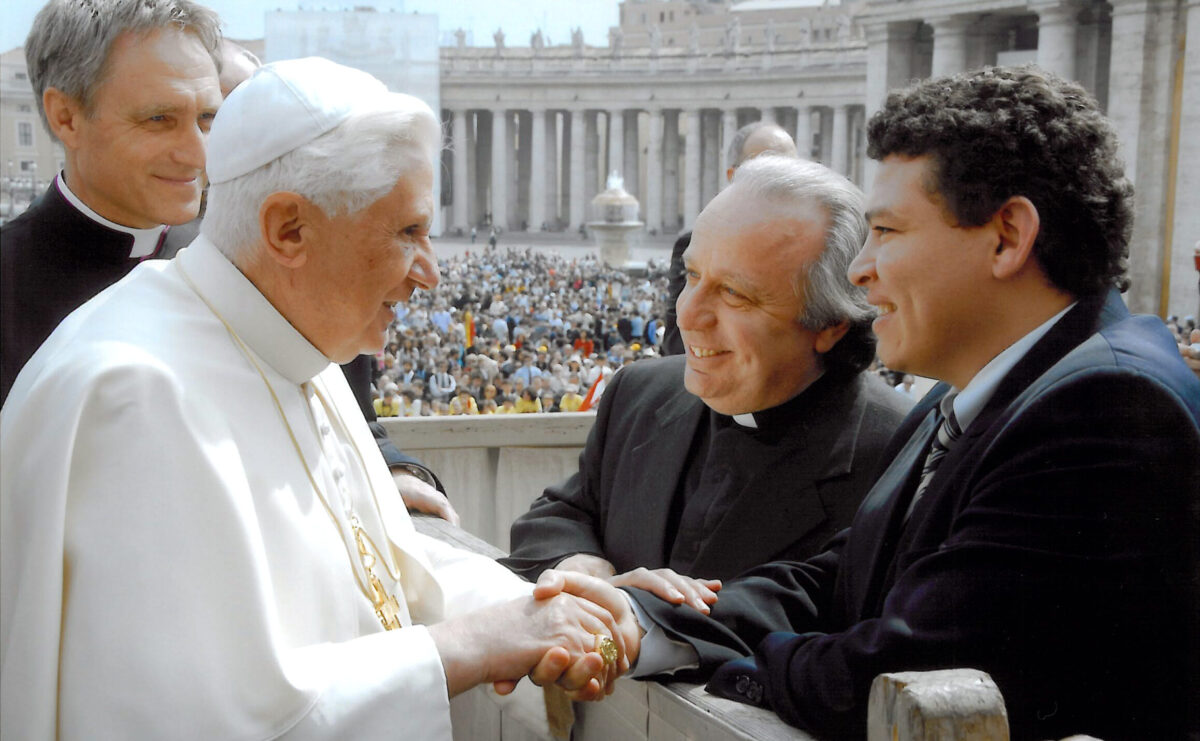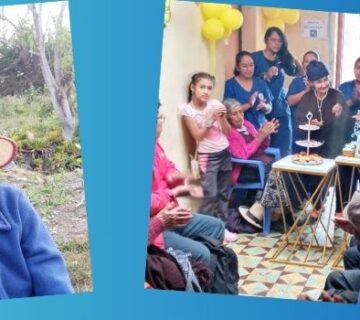The theologian Piero Coda recalls Pope Benedict XVI and his extraordinary contribution to the journey of the Church in our time.
Mons. Coda, in 1998 at the World Congress of Ecclesial Movements, the then Prefect of the Congregation for the Doctrine of the Faith, Card. Joseph Ratzinger made a historic speech about the role of ecclesial movements. What, in your opinion, are the essential points of that speech? How much have those words contributed to changing the role of movements in the Church?
Yes, it was indeed an historic speech! I was attending the Congress so I heard him give it. He had great theological competence and knowledge of the history of the Church, as well as the experience of the Council and then, in his role in the Vatican, he followed its implementation at the universal level. This allowed Ratzinger to clearly identify the meaning of ecclesial movements in the mission of the Church. His central point was to recognize the action of the Holy Spirit in the Movements. Throughout the centuries, in ever new ways and in subsequent waves, the Holy Spirit renews the People of God with the gift of charisms: from St. Benedict to the Mendicant Orders in the Middle Ages, from the Company of Jesus to the Missionary Orders in the last centuries, right up to the unexpected charismatic blossoming in concomitance with the Council. Hence the affirmation of John Paul II, in tune with the teaching of Vatican II, according to which the Church is built on the co-essentiality of the “hierarchical gifts”, the ministry conferred by the sacrament of Holy Orders and of the “charismatic gifts”, the free bestowal of special graces of light and life among all the disciples of Jesus.
 On the occasion of the death of Chiara Lubich, founder of the Focolare, Pope Benedict XVI sent a comprehensive message of condolence. What was Lubich’s relationship with him?
On the occasion of the death of Chiara Lubich, founder of the Focolare, Pope Benedict XVI sent a comprehensive message of condolence. What was Lubich’s relationship with him?
Chiara told me personally that she was very impressed by that speech of Cardinal Ratzinger in 1998 and was always grateful for it. He visited the Mariapolis Centre in Castel Gandolfo (Rome) on 8th December, 1989 and celebrated Mass on the Feast of the Immaculate Conception. He referred to the Gospel parable and said that he could see the growth of a large tree born from a small seed, in which all the birds of the sky find rest. The first years of the pontificate of Benedict XVI coincided with the last years of Chiara’s life: she could no longer meet him in person or rejoice in the fact that, a year after her death, in the encyclical Caritas in Veritate, Pope Ratzinger mentioned the Economy of Communion.
What does the thought and life of Pope Benedict XVI say to the Church of today and tomorrow, which the current Synod is helping to define?
His unique contribution was to recall, with his authority as a man of God and a great theologian, a determining truth: the work of renewal put into motion by Vatican II needs to be developed in direct contact with the living nucleus of the Gospel of Jesus and in the context of the ecclesial Tradition. He stated this clearly in his magisterial speech to the Roman Curia in December 2005, the first year of his pontificate, when he defined the decisive key to interpretation of the conciliar event as being: “continuing reform”. It is no coincidence that the best-known book by the young theologian Ratzinger, which appeared in its first edition in 1968 and was translated into the main languages, bears the title Introduction to Christianity. This signalled that the launch pad for a prophetic leap forward is the faith of always, in Jesus. Nor is it insignificant that, as Pope, he dedicated three encyclicals to the theological virtues: charity, hope and faith. He strongly stressed the primacy of the first, because it evokes the very name of the God who reveals himself in Jesus. That Jesus to whom he dedicated a passionate trilogy as an invitation to the encounter with the living principle of faith, which is not a beautiful idea, but God Himself. Faithfulness, therefore, to the patrimony of faith but so that the richness and novelty of the Gospel may be released from it. This is the secret of the strength and enduring fascination of the magisterium of Benedict XVI.
And you personally, what is the most beautiful memory you have of Pope Ratzinger?
I met him many times, first as Cardinal and then as Pope. I always experienced his great cordiality and exquisite attention. I also had the opportunity to converse at length with him about theology, in the context of a series of seminars with other scholars, at an international level, when he was Prefect of the Doctrine of the Faith. This made me realize (with increasing gratitude to God) the extraordinary contribution of wisdom he has given to the journey of the Church in our time. In agreement with Chiara, I shared the idea of the Sophia University Institute with Pope Benedict. He exclaimed, “A wonderful thing, if you can manage it…” Finally, I remember his joyful surprise when we met him during an audience with the first group of students and Caelison, a blind student, spontaneously confided to him: “We have found the light in Sophia!”.
Stefania Tanesini


 Italiano
Italiano Español
Español Français
Français Português
Português




No comment